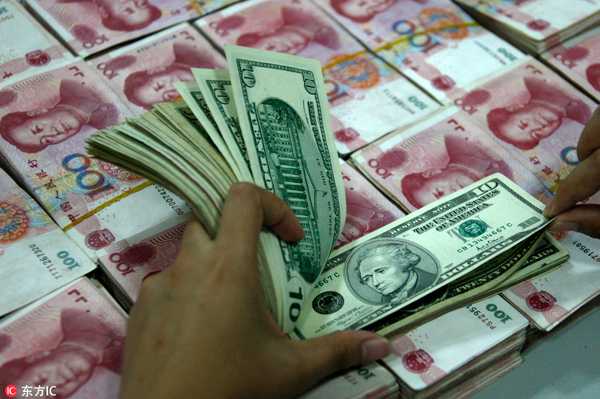 |
|
A clerk counts yuan bank notes and US dollar bills at a bank of the Industrial and Commercial Bank of China in Huaibei, East China's Anhui province, Nov 28, 2012. [Photo/IC] |
Midpoint of yuan set by China's central bank on Monday stood at 6.7008, the weakest level since September 2010, but economists see no further sharp depreciation of the currency after the nation's weeklong holiday.
The People's Bank of China, the central bank, sets midpoint of the currency, which is the level that the yuan can be traded within a two percent band below and above the midpoint.
Xie Yaxuan, chief economist at China Merchants Securities Co, attributed the level that fell below the psychological line 6.7 to a possible interest rate hike by the Federal Reserve by year-end, and to impact brought by sharp fluctuation of pound sterling and other major currencies against US dollar during the holiday.
"The disturbance brought by the depreciation to the financial market and economy remains limited," he said.
Xie believes that with international competitiveness of China's trade ,the exchange rate does not have fundamentals for a sharp depreciation.
The yuan joined the Special Drawing Rights basket, the International Monetary Fund's reserve currency basket, on the first day this month, raising some concerns over the likelihood for a sharp depreciation of yuan and capital flight soon after the SDR inclusion.
Li Chao, chief economist with Beijing-based Huatai Securities Co. said that the influence of inclusion of SDR upon China's exchange rate reform and foreign reserves is rather minimal.
Earlier data from the central bank shows that China's foreign exchange reserve shrank for the third consecutive month in September.
The reserve, the world's largest, stood at $3.17 trillion in September, down by $18.79 billion from August.
